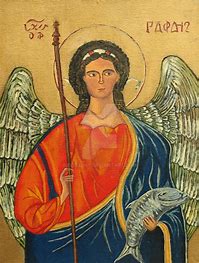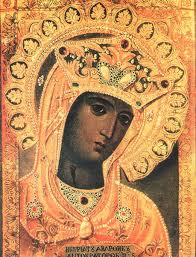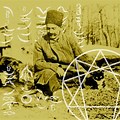Catholic priest accused of inviting nun to join ‘Holy Trinity' threesome










Catholic priest accused of inviting nun to join ‘Holy Trinity' threesome
Apriest in the Catholic church has become embroiled in a scandal amid reports he allegedly invited two other members of the church to a threesome. Marko Ivan Rupnik, known to be close to Pope Francis, is believed to have invited two nuns to engage in the act. The allegations come after one of the nuns whom he invited to take part reported it. It comes amid fears the allegations will heap significant embarrassment on the Pope who is close to the priest. The latest allegations add to other accusations of sexual misconduct dating back decades.
The recent allegation emerged on Sunday in one of Rome's newspapers after an unnamed nun came forward and claimed Rupnik had groomed her.
She also claimed that Rupnik has also taken her virginity and bullied her into silence in Slovenia in the 1980s and 1990s.
The nun told the Domani newspaper: "Father Marko started slowly and sweetly getting inside my psychological and spiritual world, exploiting my uncertainties and fragility."
She added that he allegedly asked her and another nun to have sex with him and that he explained this would replicate the three-way relationship the Holy Spirit, God, and Jesus.
Furthermore, she claimed that Rupnik had abused "nearly 20" nuns and that her complaints were ignored.
In response, the Jesuit order asked any victims to come forward and promised: "You will be listed to with understanding and with empathy."
It comes after Rupnik was accused of sexual misconduct in Slovenia in the 1990s, but which only came to light earlier this month.
When asked for comment, the priest's order said the Vatican had investigated Rupnik, but had ruled that the statute of limitations applied.
A statue of limitations is a law passed by a legislative body which sets a maximum time after an event within which legal proceedings may be started.
In the case of Rupnik, his actions fell outside of this window and he was not punished.
Just a days later, the head of the order said Rupnik had been excommunicated in May 2020 for using a confessional to declare free from guilt a woman with whom he had had relations.
In the context of the Vatican, an excommunication is when someone is excluded from taking part in sacraments and services of the Christian church.
In Rupnik's case, the excommunication was lifted later that month after Rupnik repented.
The allegations follow a run of poor responses say experts.
One expert, Father Hans Zoller, said: "This has been handled badly since the 1990s and there are many questions to be answered."
Meanwhile, Vatican correspondent for L'Espresso, Sandro Magister said: "The matter for which Rupnik was excommunicated was very serious, and the subsequent lifting of that excommunication had to be ordered by the Pope or at the very least approved by him.
"That doesn't surprise me since Francis has previously taken decisions which go against those already taken at the Vatican."
Official who defrauded Church of England out of £5.2m jailed for five years











Official who defrauded Church of England out of £5.2m jailed for five years
An official who defrauded the Church of England out of £5.2 million to spend on his lavish lifestyle travelling the world has been jailed for five years.
Southwark Crown Court heard ex-prisoner Martin Sargeant, 53, was given a “second chance” after stealing from previous employers in the 1990s, landing an £86,000-a-year job with the Archdeaconry of London.
Prosecutor Joey Kwong said as head of operations Sargeant was “handsomely remunerated” for his work but “defrauded the church in a persistent, sophisticated and frankly brazen manner” over 11 years between 2009 and 2019.
Sargeant, who was clerk of the City Church grants committee charitable trust, was responsible for 33 city churches, some which were “dysfunctional” and had no vicar.
He made false applications for grants for maintenance or improvements and used funds received from large City developments near to churches to defraud a total of more than £5.2 million.

The court heard that as a result of the fraud, many of the City churches have not been able to maintain their buildings and some have closed their doors to the public.
“It is clear that the funds were lavished on his lifestyle,” said Mr Kwong. “By the end of the fraud he had assets of more than £450,000 across personal bank accounts as well as having three properties in Scotland worth approximately £1 million.
“He lavished money on multiple trips abroad and there was lavish spending in terms of his lifestyle.”
The court heard Sargeant booked a total of 158 flights with British Airways over the period of the fraud, visiting destinations including New York, Miami, the Maldives, Venice, Barcelona and Rome.
His love of foreign travel prompted a previous comparison in court to the late globetrotting broadcaster Alan Whicker.
Sargeant’s properties included six riverside log cabins, which he rented out as a business, while he made more than £600,000 of investments and spent over £1 million on credit cards.
He blew thousands of pounds at clothes from fashion brands Ted Baker and Burberry and over three months in 2013 spent more than £30,000 at five-star Soho Hotel.
Mr Kwong said that “of note” was that over the 11 years he spent just £1,500 on the church and that although prosecutors accepted Sargeant had a gambling problem it was “not the main driver in the offending – it’s greed.”
Sargeant was jailed for five years on Monday, having previously pleaded guilty to a count of fraud by abuse of position between January 1, 2009 and December 31, 2019.
He denied a further count of money laundering, which was left to lie on file.
Judge Michael Grieve KC said: “This was a sophisticated fraud carried out systematically over a period of 11 years resulting in a massive loss to the churches of the City of London, which they could ill afford.”
Sargeant, who grew up in Bournemouth, was handed a community order in 1992 for theft by employee and was jailed for 21 months on 1995 for offences including 19 counts of theft.
The court heard the convictions related to his previous employers, including a shoe shop and a bar, which he claimed to have disclosed to the CoE before working in the role.
But a spokeswoman for the Diocese of London said: “Mr Sargeant was not an employee of the Diocese.
“The Diocese only became aware of the prior conviction when informed by the police as part of the investigation.”
He became head of operations in 2007 as a contractor with the Archdeaconry of London, initially earning £56,000 and rising to around £86,000 before his retirement in 2019 – a total salary of £750,000 over the period of the fraud.
Richard Perry, chair of the London Diocesan Fund’s audit and risk committee, said it was still working with police to secure the defrauded funds.
“Last year, our auditors carried out an urgent review of our present-day financial controls, to confirm they are robust,” he said.
“A further independent fraud inquiry, conducted by external forensic accountants, is being commissioned now the court case is complete, and it will report to the London Diocesan Fund’s trustees next year.”
The Bishop of London, Dame Sarah Mullally, added: “I want to echo my gratitude to the police, and to the London Diocesan Fund’s financial team, for their significant work over the past year, as they investigated the extent of this complex, historic fraud.”
Sargeant’s barrister Mark Ruffell said his client wanted “those who have suffered because of him to know he is genuinely sorry and he accepts 100% what he has done”.
“Underlying all that has gone on is his gambling addiction.”
Reference: Story by By Henry Vaughan, PA
Pope orders return of 2,500-year-old Parthenon pieces to Greece from Vatican's collection










Pope orders return of 2,500-year-old Parthenon pieces to Greece from Vatican's collection
pe Francis has ordered the return of three 2,500-year-old pieces of the Parthenon to Greece that have been in the papal collections of the Vatican Museums for more than a century.
The Vatican said in a brief statement on Friday that the pope was giving them to Ieronymos II, the head of the Greek Orthodox Church, as a gesture of ecumenical dialogue with the Roman Catholic Church.
The Parthenon, which is on the Acropolis in Athens, was completed in the fifth century BC as a temple to the goddess Athena and its decorative friezes contain some of the greatest examples of ancient Greek sculpture.
It was not immediately clear what plans Ieronymos had for the small sculptures.


According to the Vatican Museums website, one piece is the head of the horse that was pulling Athena's chariot on the west side of the building.
The others are from the head of a boy and the head of a bearded male. They have been in the Vatican since the 19th century.
The pieces are being returned to Greece as London and Athens continue to battle over the so-called Elgin Marbles.
Greek Culture Minister Lina Mendoni expressed her gratitude to Pope Francis 'for the generous decision,' saying in a statement that it supported the government's efforts for the return of the marbles from the British Museum.
Greece has repeatedly called for the permanent return of the 2,500-year-old sculptures, which British diplomat Lord Elgin removed from the Parthenon temple in the early 19th century when he was ambassador to the Ottoman Empire, Greece's then-ruler.
The British Museum has always ruled out returning the marbles, which include about half of the 160m (525ft) frieze that adorned the Parthenon, and insists they were legally acquired.


Earlier this month a Greek newspaper reported that a deal to return the marbles to Greece was close, but the Greek government said it was not imminent.
In March, the United Nations' cultural agency UNESCO urged Greece and Britain to reach a settlement.
It comes just days after Culture Secretary Michelle Donelan said returning the 'Elgin Marbles' to Greece would be a 'very dangerous and slippy road'.
The Cabinet minister suggested handing back the 2,500-year-old sculptures would spark a wave of demands for the return of other artefacts held in Britain.
'Where does that end?,' asked Ms Donelan, as she highlighted how the law currently 'does not allow' historical objects to leave the UK apart from in certain circumstances.
It recently emerged that George Osborne, the former chancellor who is now chairman of the British Museum, has been holding talks with Greece's prime minister over the possible return of 'Elgin Marbles'.
'I think George Osborne's position is a little bit different to has been portrayed,' Ms Donelan told MPs.


'But there are some people that are strongly advocating to return some of these items permanently. The current law does not allow that, it should be acknowledged.
'I can completely understand the position that they are taking and I can sympathise with some of the argument. But I do think that is a very dangerous and slippy road to embark down.'
The Culture Secretary added that Britain had 'taken great care' over artefacts held in the country's museums 'for decades' and had conducted 'considerable' research into historical items.
She told the committee: 'Once you start giving one back, where does that end?
'It's also very difficult to know who to give these things back to. We're talking about very ancient items in many respects.
'There are certain examples where it is not clear over exactly who the owners are. And others where I would argue it is more clear that we have a direct link to ownership.
'But, certainly, I think the current status quo is working and we should protect it.'
Biblical story proven true as evidence for Maccabean Revolt found in Judean Desert











Biblical story proven true as evidence for Maccabean Revolt found in Judean Desert
The discovery of a stash of silver coins dating back 2,200 years to the time of the Seleucid Empire, an ancient Greek state, has provided the first evidence from the Judean desert in support of the biblical account of the Maccabean Revolt. This uprising - which took place between 167-141 BC - saw rebel warriors push back against broad Hellenistic influences and decrees calling for the suppression of Jewish religious practices. The Revolt is described in the First and Second Books of Maccabees, which are included in the Greek Old Testament, or Septuagint, as well as the Vulgate, the Latin Bible used by the Roman Catholic Church.
The hoard, worth some 30,000 shekels (more than £7,100) in today's money, was unearthed by archaeologists in the Murabba'at Cave, located within the Darageh Stream Nature Reserve near the Dead Sea, back in May this year.
The coins - of which there were 15 in total - were found in a unique, lathe-turned wooden box arranged with pieces of sheep's wool, and covered by a large piece of purple woollen cloth and on top of that layer of earth and small stones.
The coins - which were studied in the Israel Antiquities Authority's metal finds laboratory - were found to all be silver tetradrachma coins, each worth four drachma, that had been minted at the behest of the Ptolemy VI Philometor.
Ptolemy VI was the king of the ancient Greek state of Ptolemaic Egypt from 180-164 BC and then again from 163-145 BC. He ruled at the same time that his uncle, Antiochos IV Epiphanes - dubbed "the wicked" in Jewish tradition - reigned over the Seleucid Empire, whose domain included Judea.
According to the researchers, the three earliest coins found in the box were minted in either 176 or 175 BC, and the latest in either 171 or 170 BC
Based on the latter dates, the experts believe that the hoard was most likely hidden at the beginning of, or just prior to, the events of the Maccabean Revolt.

As described in the First Book of Maccabees, groups of Jews fled to hiding places in the desert to avoid the decrees imposed on them.
It says: "Then many who were seeking righteousness and justice went down to the wilderness to dwell there: they, their sons, their wives, and their cattle, because evils pressed heavily upon them.
"And it was reported to the king's officers, and to the troops in Jerusalem in the city of David, that men who had rejected the king's command had gone down to the hiding places in the wilderness.
"Many pursued them and overtook them; they encamped opposite them and prepared for battle against them on the sabbath day... and they died, with their wives and children and cattle, about a thousand persons."


The coins were examined by archaeologist Dr Ezra Klein and numismatist Dr Gabriela Bijovsky, both of the Israel Antiquities Authority.
Dr Klein said: "It is interesting to try to visualise the person who fled to the cave and hid his personal property here intending to return to collect it.
"The person was probably killed in the battles, and he did not return to collect his possession that awaited almost 2,200 years until we retrieved it.
"This is an absolutely unique find, presenting the first clear archaeological evidence that the Judean Desert caves played an active role as the stage of the activities of the Jewish rebels or the fugitives in the early days of the Maccabean Revolt, or the events that led up to them."

Israel's Minister of Jerusalem Affairs and Heritage, Zeev Elkin, said: "This moving find, coming just before the festival of Hanukkah, is symbolic, emphasising once again the importance of our activity in the field of heritage.
"Over the recent years, the Ministry of Jerusalem and Heritage [...] has invested millions of shekels in the Judean Desert Survey.
"Together with the Israel Antiquities Authority and the Archaeology Staff Officer of the Civil Administration of Judea and Samaria, we have taken steps to save and preserve many heritage sites in the Judean Desert and in Judea and Samaria, and I commend all the participants in this important task."
The coin hoard is set to go on public display over Hanukkah - the celebration of the recovery of Jerusalem and the rededication of the Second Temple in 164 BC, early in Maccabean Revolt - at the Hasmonean Museum in the city of Modi'in-Maccabim-Re'ut.
This year, Hanukkah falls on December 18-26 in the Gregorian calendar.
Articles-Latest
- Koran burning conviction sparks fury as blasphemy law 'returns to UK'
- Robert Francis Prevost - Pope Leo XIV
- Pope Francis' death follows recent health challenges. Here's what we know about how he died.
- Easter April 2025 - international Celebrations
- The Rule of the twelve psalms -Worthy is the Lamb
- Religion in Africa Before Christianity and Islam
- 6 The Origin of Yahweh
- Dumo Di Milano
- What Did the Crow Tribe Believe In: Discover The Beliefs!
- 7 Reasons Historic Christianity Rejects the Book of Enoch
- 8 Breathtaking Mountain Monasteries Around the World
- Ethiopian Bible is oldest and most complete on earth
- Muhammad Muhammad was a prophet and founder of Islam.
- World Day of the Poor – SVP Christmas Campaign 2024
- Pope Francis to open 5 sacred portals on Christmas Eve — for a ritual that’s never been done before
- The 144,000 in Revelation
- Over 73 dead bodies 'used for meditation', 600 crocs in a pond, found in two Thai temples
- Occultism: Western Occult Tradition
- What is a Mudra
- Blood Sacrifices: Ancient Rituals of Life and Death
Articles-Most Read
- Home
- Let There Be Light
- Plants that feel and Speak
- The Singing Forest
- The Singing Forest-2
- Introduction
- Meditation
- Using Essential Oils for Spiritual Connection
- Heaven Scent
- Plants that Feel and Speak-2
- Purification
- Making the Spiritual Connection
- Anointing
- Essential Oils: The unseen Energies
- The Sanctity of Plants
- The Aroma Of Worship-Foreward
- The Aroma Of Worship - Introduction
- Methods Of Use
- Spiritual Blending
- Handling and Storage












